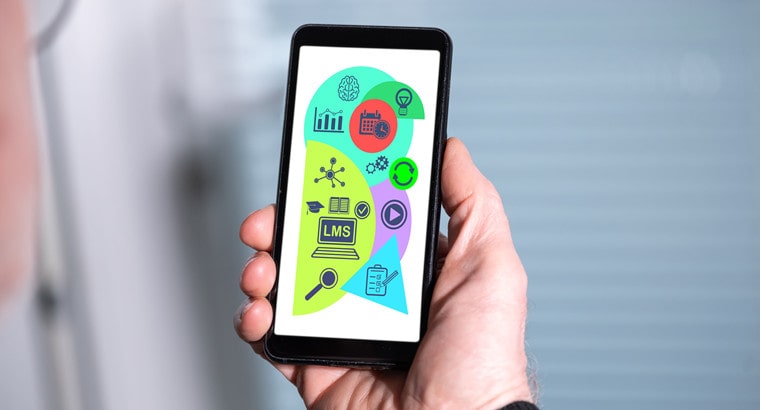We can’t imagine our lives without our smartphones. The workplace is no exception to the trend of people searching for information on their mobile devices throughout the day.
From a business standpoint, this trend has impacted all company sectors, including L&D. Flexible working hours and working outside of the office are typical in today’s workforce. They expect to be able to learn in a variety of ways. Thus, mobile learning (M-learning) has emerged as a key shift in the training sector.
What is a Mobile LMS?
A mobile learning management system (LMS) like iSpring LMS allows learners and instructors to document, track, and report learning programs, training sessions, seminars, and learning content using mobile devices such as smartphones and tablets. The time instructors and learners would have spent going through the normal LMS processes can now be saved using mobile-enabled LMS software.
With the finest mobile LMS, instructors may easily design courses, post them to an online catalog, and then assign them to learners.
Let’s look at some of the reasons why one should opt for a mobile Learning Management System:
A Mobile LMS Allows Employees to Access Courses at any time:
For your employees to access the course material on their mobile devices, a mobile learning management system (LMS) is essential for you. Organizations, in the past, required their employees to go through a training deck on their desktop computers, which they were supposed to complete while at work. Employers want their workers to be productive as businesses become more competitive.
Because of this, they choose to offer online classes that can be accessible even when they are not in the office. Due to the widespread adoption of digital technology in the workplace, employees can access training content anytime. Your employees will always access the course content if you use a mobile learning management system (LMS).
Achieving a High Level of Employee Engagement:
Encouraging employee participation in training is made easier with mobile LMS capabilities such as discussion forums and video conferencing. People can discuss training subjects and express their thoughts openly.
New information can be discovered and disseminated quickly because of increased mobile connectivity and mobile apps. It fosters cooperation among coworkers who share similar values. In addition to enhancing learning, it creates a more welcoming learning environment for the organization.
Monitoring and reporting:
Creating an online learning platform is not the end of the road. Knowing if the process benefits the company’s workers and the overall business is crucial.
The ‘tracking and reporting’ feature collects data that can be used to evaluate the efficacy of the new procedure. Synchronization and tracking capabilities and the capacity to generate reports on various learning indicators are standard features of mobile learning management systems (LMSs). Based on this information, we can derive:
- The outcome of the training program.
- Look for areas that require improvement.
- Improve the quality of learning.
Better Knowledge Retention:
Mobile LMS is not just an online version of a training book. Readers will retain and use the knowledge better if it is presented engagingly and dynamically. The course modules encourage employee involvement through multimedia components such as audio, video, and graphics.
Users tend to pay greater attention to the content when there are several interactive features in the course module. As a result, online course modules are often presented in bite-sized chunks focusing on key concepts. This is done so that readers may swiftly scan over the content and retain the information.
Cost-effectiveness:
A mobile learning management system (LMS) is a cost-effective way for firms to teach and develop their employees. Mobile learning may drastically cut the costs of off-site training, logistics, trainers, and travel. Organizations can save money on resources by providing their employees with smartphones and affordable or accessible software.
Conclusion
Organizational growth, an ever-increasing mobile workforce, and rising reliance on mobile devices are driving forces behind adopting a mobile Learning Management System. However, the widespread adoption of mobile devices for various jobs and the flexible policies that have led to their pervasiveness have made a mobile Learning Management System the next big thing in the corporate Learning and Development sector.










